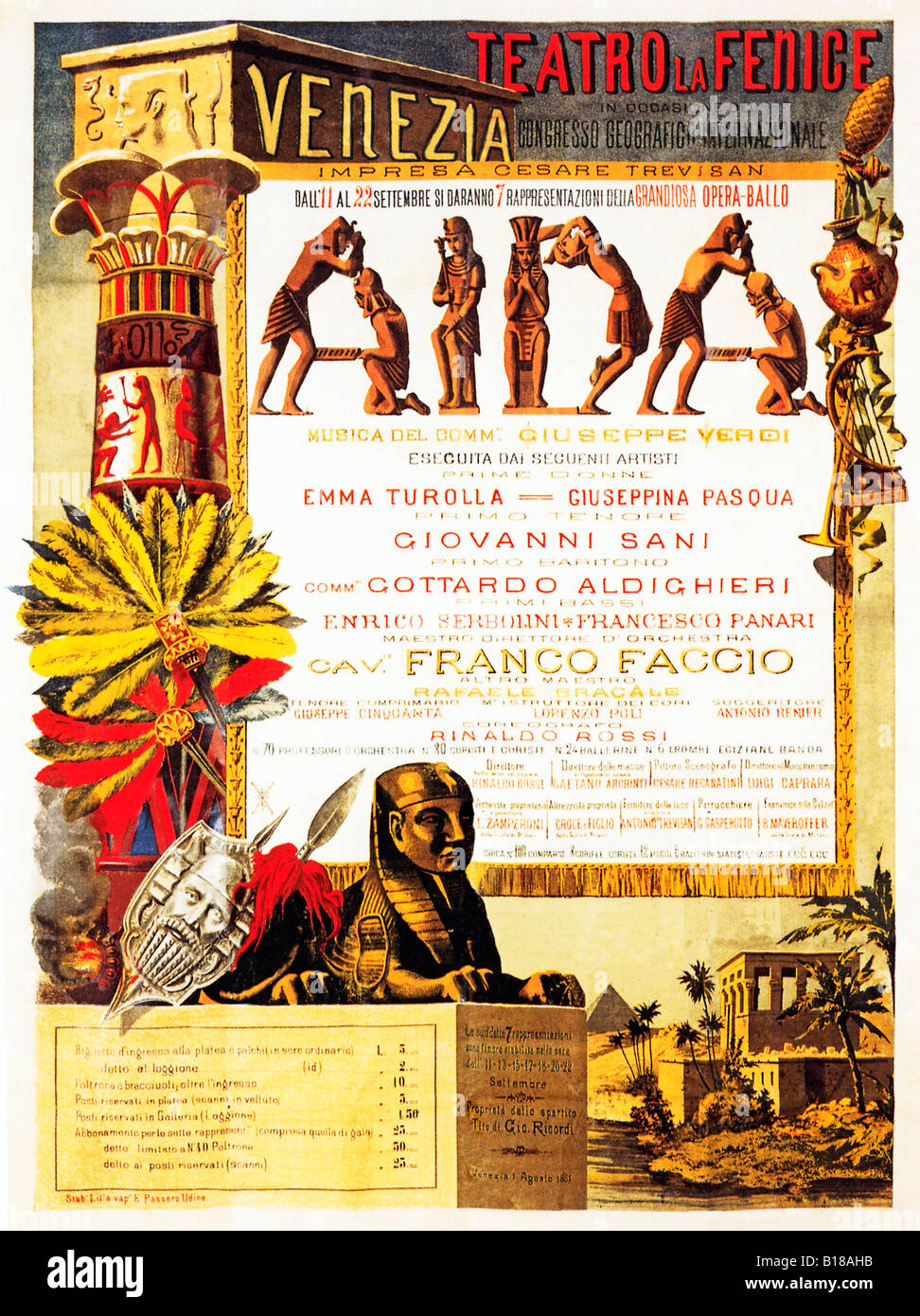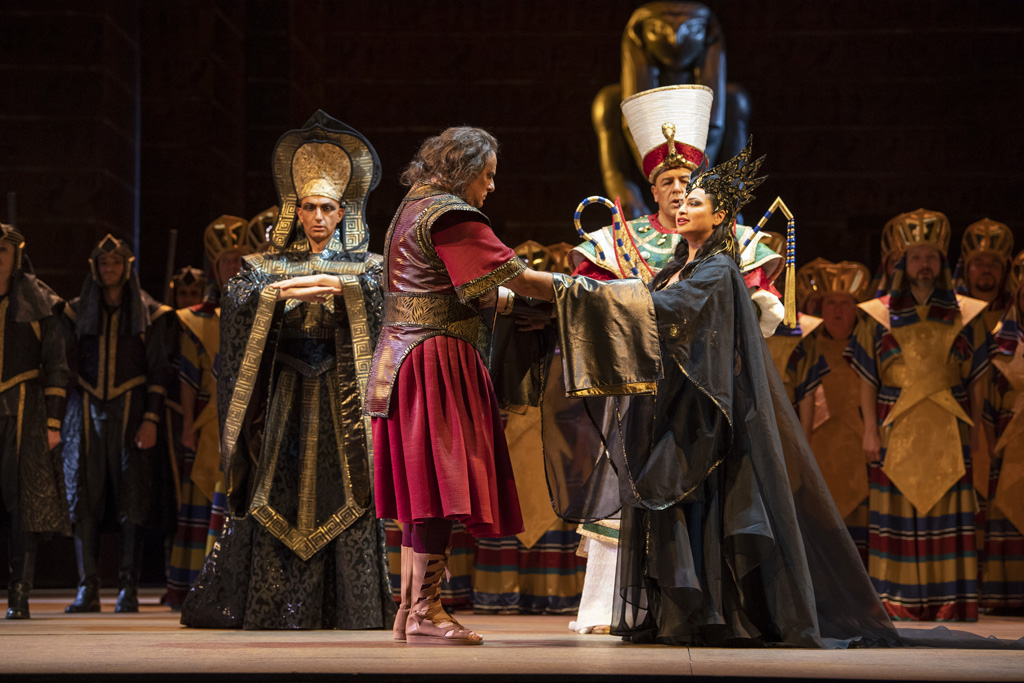

Young composers were turning above all to Germany and Wagner to find their inspiration, abandoning the lyricism and formal purity of Italian opera. The Wagner threat had worked its magic.īy 1870, Verdi realized that Italian music and Italian unification were not headed in a direction that he would have liked. The composer declared the scenario “well-made” and that “behind it all is the hand of an expert, thoroughly familiar with the stage.” Actually, this was the first and only time Mariette would ever be involved in the theater. When Mariette suggested that he might approach Wagner if Verdi declined, Verdi immediately warmed to the project.

Mariette, who had been Egyptologist to the Louvre museum in Paris since 1849, was well-known for his archaeological discoveries. Verdi had already considered several subjects – among them Le Cid and Adrienne Lecouvreur, both of which were later taken up by other composers – when he received Mariette’s scenario. The opera’s text was based on a story from antiquity discovered by the eminent French Egyptologist Auguste Mariette. Aida, commissioned to open the new opera house in Cairo, Egypt, continued this trend of large-scale, high-profile productions.

Petersburg, Russia, and Don Carlos (1867) for the Opéra in Paris. Verdi had long been toying with the idea of retiring, but large-scale prestigious projects kept luring him back to the theater – La forza del destino (The Force of Destiny, 1862) for the Imperial Theater in St.

He was rich from long years of hard work – he called them his “years in the galley” – and his fame spread well beyond his native Italy. The kingdom of the Pharaohs, shrouded in mystery, captured the western imagination, and Verdi was no exception.īy 1870, when Verdi first started working on Aida, the composer had reached a point in his career where he could be very selective about his subjects. Even though the British defeated the French handily, Napoleon’s scholars brought a treasure trove of images and accounts of Egypt back to Paris. Just before the beginning of the century, in 1798, Napoleon had led French troops down the Nile with a battalion of scientists, cartographers, and artists in tow. The orient had been an object of European interest since the middle ages, and, in the 19th century, this focused especially on Egypt. When Radames helps Aida and her father to escape their Egyptian captors, he betrays both his people and Amneris, daughter of the Pharaoh, and his future wife.During the 19th century, Europe and North America were enthralled by all things foreign and exotic, and Giuseppe Verdi’s Aida was both. Two warring nations, Egypt and Ethiopia, are the backdrop for the more intimate story of Radames, leader of the Egyptian forces, and his affair with Aida, daughter of his enemy’s King. The result was Aida, which was performed at the house for the first time on 24 December 1871.Īida is classic Verdi: a tale whose dynamic stems from one individual’s love for another being thwarted by the world that surrounds them. After Verdi’s Rigoletto was performed for the dedication of the Khedivial Opera House on 1 November 1869, the Egyptian Viceroy was determined to have a new work, his own world premiere, to match the splendour of his theatre. Pasha had originally hoped to entice Verdi into writing a hymn to celebrate the opening of the Suez Canal, an occasion that would also be marked by the building of a new opera house in Cairo but the composer showed little interest. Now performed all over the world, Giuseppe Verdi’s Aida was the outcome of a direct commission from Egypt’s ruler, Isma'il Pasha a statement of his ambition for his country to become the bridge between the European and African continents.


 0 kommentar(er)
0 kommentar(er)
